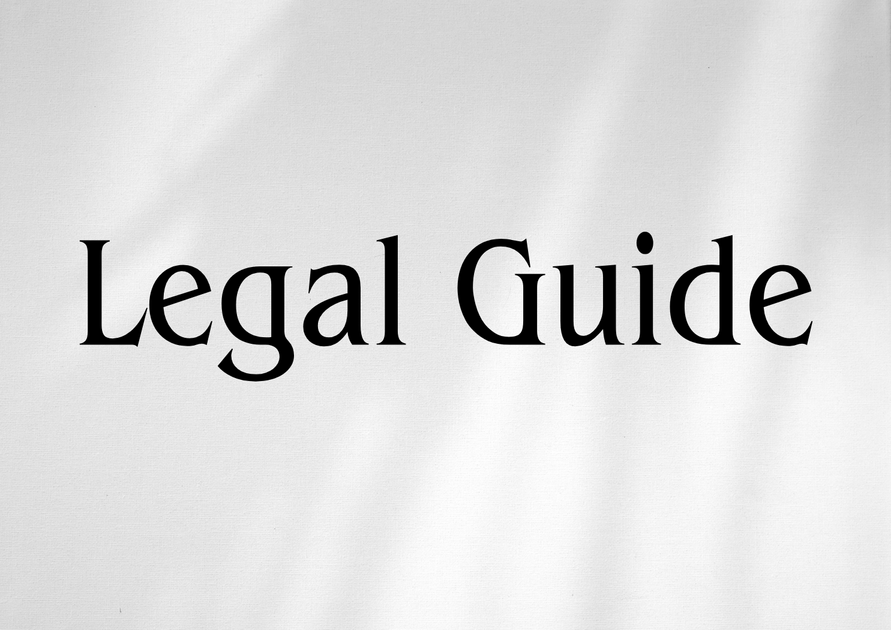Introduction: The Expanding Role of Force Majeure Clauses in UAE Contract Law
In recent years, the United Arab Emirates has experienced economic transformation, with its dynamic legal environment responding to global events such as the COVID-19 pandemic, supply chain disruptions, and increasing cross-border commercial engagements. Amid these complexities, the concept of ‘force majeure’—or unforeseen circumstances that prevent contractual obligations from being fulfilled—has taken center stage. As the UAE fortifies its position as a global business hub, an expert understanding of force majeure clauses is now essential for business leaders, executives, HR professionals, and legal advisors. Recent amendments, including updates under Federal Decree-Law No. (50) of 2022 regarding the Civil Transactions Law (commonly known as the New UAE Civil Code), have modernized the force majeure regime, underscoring the need for organizations to proactively review and reassess their contract strategies. This article provides comprehensive legal guidance, practical frameworks, and risk analysis anchored in the latest UAE legislation. Whether negotiating international trade contracts, large infrastructure projects, or cross-sectoral business agreements, due diligence in drafting and interpreting force majeure clauses is critical in safeguarding operations, managing liability, and maintaining compliance with UAE law.
Table of Contents
- UAE Legal Framework for Force Majeure Clauses
- Understanding Force Majeure in UAE Law
- Recent Developments and UAE Law 2025 Updates
- Practical Application in Major Contracts
- Case Studies and Hypotheticals
- Risks of Non-Compliance and Legal Pitfalls
- Practical Strategies for Legal Compliance
- Conclusion and Best Practice Recommendations
UAE Legal Framework for Force Majeure Clauses
Relevant Statutes and Official Provisions
The main source regarding force majeure in the UAE is the Civil Transactions Law, initially Federal Law No. (5) of 1985 and now superseded in key areas by Federal Decree-Law No. (50) of 2022 (“New UAE Civil Code”). The UAE Judiciary, under the oversight of the Ministry of Justice and the legal clarifications issued by the UAE Courts, further refines how these provisions are to be interpreted in practice.
Key articles central to force majeure include:
- Article 273 (New Law): Outlines consequences if contract performance becomes impossible due to external, unforeseen, and overriding events.
- Article 287: Relates to liability for damages if a party is prevented from fulfilling obligations for reasons beyond their control.
These provisions form the backbone against which contractual wording is assessed in UAE contractual disputes. The legal system remains based on principles of civil law and, in many business cases, Sharia principles where applicable. Official government explanatory notes are available via the UAE Ministry of Justice and the UAE Government Portal.
Comparison of Old and New Laws: Force Majeure Interpretation
| Aspect | Federal Law No. (5) of 1985 | Federal Decree-Law No. (50) of 2022 |
|---|---|---|
| Threshold for Force Majeure | Strict (often literal impossibility required) | Broadened, considering commercial impracticability and fundamental change |
| Procedural Requirements | Limited guidance | Emphasizes evidence, notification, and mitigation duties |
| Judicial Discretion | Greater deference to written contract terms | Judges given explicit authority to adapt or terminate contracts |
| Reference to International Standards | Implicit | Explicit integration of international best practices (ICC clauses, etc.) |
Understanding Force Majeure in UAE Law
What Constitutes a Force Majeure Event under UAE Law?
A force majeure event, as recognized in the new Civil Transactions Law, must meet a high threshold: it must be unforeseeable, external to the parties, and render contractual performance objectively impossible, not merely difficult or costly. Examples include natural disasters (earthquakes, floods), epidemics, government-imposed lockdowns, wars, and certain types of regulatory changes.
Legal Test Applied by UAE Courts
The UAE courts apply a dual-stage analysis:
- Was the event reasonably unforeseeable and outside the parties’ control when entering into the contract?
- Did the event make performance impossible in an absolute sense, or merely more onerous?
Only in scenarios that satisfy both prongs is force majeure presumed to have occurred. Otherwise, parties may be excused under ‘exceptional circumstances’ (hardship clauses) but not full force majeure.
Drafting Considerations for Corporate Counsel
- Ensure definitions of ‘force majeure’ are tailored, exhaustive, and not boilerplate.
- Clearly state which events are excluded (e.g., predictable regulatory changes, strikes, or general economic downturns).
- Articulate notification timelines and evidentiary requirements—details increasingly scrutinized by both the courts and government regulators.
Recent Developments and UAE Law 2025 Updates
Key Changes Introduced by Federal Decree-Law No. (50) of 2022
The New UAE Civil Code introduces clarity and flexibility, aligning with international contractual standards and the growing use of English-law style contracts in the UAE. For example, under the updated Article 273:
- If an unforeseen event makes performance impossible, the contract is automatically terminated.
- If performance is partially impossible, only the affected part is voided, unless the contract cannot survive in part.
- Either party may apply to the court for termination or adaptation of the contract in light of materially changed circumstances.
Case Law and Judicial Trends
UAE courts, in alignment with recent government circulars, are increasingly pragmatic—favoring the preservation of contracts where possible, but recognizing the commercial realities of global threats (e.g., war in Ukraine, supply chain bottlenecks). Notable Supreme Court decisions emphasize that the party invoking force majeure must provide prompt notice and compelling evidence.
Practical Impact for UAE Businesses
- Construction and real estate projects: Delays due to government restrictions or supply chain issues may be covered—but only if explicitly referenced in the contract.
- International trade: Events like global commodity shortages or port closures must be carefully evaluated against contract wording.
- Employment contracts: Broadly excluded from statutory force majeure relief, though some flexibility exists for temporary suspensions.
Practical Application in Major Contracts
Common Sectors Impacted
- Oil & Gas (“Upstream/Downstream” projects)
- Real Estate Development
- Logistics and Supply Chain
- Event Management and Hospitality
- Technology and Outsourcing Agreements
Example Force Majeure Clause: UAE-Compliant Language
“Neither party shall be liable for any failure to perform its obligations where such failure is the result of causes beyond its reasonable control, including but not limited to acts of God, strikes, government restrictions (including lockdowns or trade embargoes), wars, or any other unforeseen events deemed force majeure under Federal Decree-Law No. (50) of 2022, provided that prompt written notice is given and reasonable efforts to mitigate the effects are undertaken.”
Process Flow: Responding to a Force Majeure Event (Visual Recommendation)
- Event Occurs
- Assess impact against contract language and law
- Issue written notice within contractually defined period
- Document and gather evidence of impact
- Mitigate loss to reasonable extent
- Engage in negotiation or, if unresolved, resort to UAE Courts
Case Studies and Hypotheticals
Case Study 1: Disrupted Construction Project
A UAE-based contractor faced weeks-long delays after a pandemic-related government closure of all construction sites. The contract featured a robust force majeure clause, referencing ‘government-imposed work suspensions.’ Prompt notification was issued, and the parties renegotiated delivery schedules—demonstrating effective utilization of force majeure protection under the new legal regime.
Case Study 2: International Trade Contract
An Emirati trading company was unable to import goods after a foreign port closure. However, the contract’s force majeure clause did not reference ‘port closures,’ and mitigation (alternative suppliers) had not been attempted. The UAE court found against the company, highlighting the importance of precise drafting and active loss mitigation.
Case Study 3: Tech Outsourcing
A software services provider experienced a cyberattack that disrupted cloud infrastructure. Their contract lacked an explicit ‘cybersecurity incident’ force majeure provision. The court questioned foreseeability due to global cyber threats, and both sides bore partial loss—again underscoring the need for tailored contractual language.
Risks of Non-Compliance and Legal Pitfalls
Legal Risks
- Invalid or Vague Clauses: Generic force majeure clauses may be disregarded by courts, exposing parties to liability.
- Failure to Notify: Late or improper notification can forfeit the right to force majeure relief.
- Inadequate Evidence: Courts require concrete proof of both the event and its direct impact on performance.
Commercial Risks
- Loss of business opportunities and reputation
- Heightened litigation costs and project delays
- Potential regulatory penalties under sector-specific UAE Cabinet Resolutions (e.g., real estate escrow regulations, financial sector requirements)
Penalty Comparison Chart (Suggested Visual)
| Non-Compliance Issue | Potential Penalty | Mitigation Strategy |
|---|---|---|
| No force majeure clause | Full liability for non-performance | Contract review and amendment |
| Late notice | Loss of contractual relief | Automated notification protocol |
| Poor evidence | Unsuccessful claims in court | Documentation procedures |
Practical Strategies for Legal Compliance
Compliance Checklist for UAE Organizations (Visual Recommendation)
- Conduct regular contract audits for force majeure adequacy.
- Custom draft language for each contract category/industry.
- Establish internal protocols for prompt notification and impact assessment.
- Maintain thorough evidence logs and incident records.
- Stay updated on Federal Decrees and regulatory guidance via the Ministry of Justice and Federal Legal Gazette.
- Deploy legal training programs for contract managers and senior executives.
Proactive Legal Recommendations
- Engage experienced UAE legal counsel to review and draft force majeure clauses reflecting recent legislative changes.
- Integrate international best practices (e.g., reference ICC Force Majeure Clauses or FIDIC contracts where relevant), ensuring compatibility with UAE law.
- Negotiate tailor-made clauses with clear definitions, lists of triggering events, notification procedures, and robust mitigation obligations.
- Align procurement, HR, and operations teams through cross-departmental awareness of contract terms and compliance requirements.
Conclusion and Best Practice Recommendations
In light of recent updates, including Federal Decree-Law No. (50) of 2022 and anticipated sector-specific regulations in 2025, force majeure clauses have become pivotal in UAE contracting practice. Effective risk allocation, robust notification, and precise clause drafting are no longer optional—they are essential for legal compliance, business continuity, and dispute avoidance.
Looking ahead, UAE courts and regulators are likely to continue emphasizing proactive risk management, real-time evidence, and commercial reasonableness. Organizations should cultivate a culture of contract literacy and regularly engage qualified legal professionals to interpret complex statutory changes. Ultimately, a well-drafted force majeure clause is both a shield and a strategic tool—a necessity for thriving in the rapidly evolving UAE business landscape.
Best Practice Tips:
- Audit legacy contracts and renegotiate outdated force majeure terms.
- Train contract managers in compliance obligations and notification protocols.
- Monitor legislative and regulatory developments on the UAE Government Portal and Federal Legal Gazette.
- Document all communications and mitigation steps following a force majeure event.
By embedding these principles, UAE businesses and their advisors will remain not only compliant but also resilient—ready to navigate unforeseeable disruptions in the years ahead.




